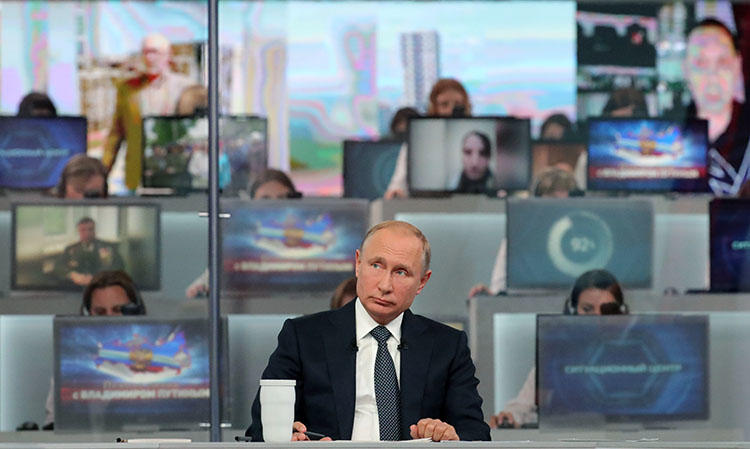Russian journalist Viktor Korb on May 16 was charged by authorities in the Russian town of Omsk, in southwestern Siberia, for transcribing and publishing a 2015 speech that a Kremlin critic gave at his trial. Korb on June 26 told the Committee to Protect Journalists that he remains unable to work and access money, and is barred from leaving Omsk, his hometown.
“I can write and publish, but I already lost my permanent job in the media,” Korb, an independent journalist who has published articles with various media outlets and on his own website, Patriofil, told CPJ over Facebook Messenger on June 26. He added that employers are afraid of the risks associated with interacting with a person facing such charges.
The charges against Korb include incitement to terrorism, justification of terrorism, and terrorist propaganda, Human Rights Watch (HRW) reported. He faces up to seven years in prison if convicted.
Those charges have limited his freedom of movement as well. “I am forbidden to leave Omsk without the permission of the investigator,” Korb said, explaining that authorities extend this measure every 10 days.
The charges have led to Korb’s bank accounts being blocked. According to Russian federal counterterrorism law, the authorities are permitted to block the bank accounts of suspects in terrorism cases. Korb’s PayPal and WebMoney accounts have also been blocked, and after he began using his daughter’s PayPal account, it too was blocked.
PayPal and WebMoney did not respond to emailed requests for comment.
On May 18, Russian police and security service agents raided Korb’s apartment and conducted a 10-hour search during which they seized electronic devices, including two laptop computers, belonging to him and his family, Radio Free Europe/Radio Liberty and HRW reported.
Korb was detained two days later by law enforcement officers as he prepared to fly from Omsk to Moscow and informed that he was not allowed to leave Omsk due to an ongoing criminal investigation, HRW said, citing the local Noviy Omsk news site.
Russia’s Ministry of Internal Affairs declined to comment on Korb’s case when reached by phone and did not respond to CPJ’s emailed request seeking comment.
HRW said the charges stem from a court transcript Korb published on his eight-year-old website Patriofil in April 2015. The transcript is a speech made by Kremlin critic Boris Stomakhin at his trial. Stomakhin was jailed on charges of promoting terrorism and extremism, which he claimed were politically motivated.
HRW researcher Vladislav Lobanov wrote on the organization’s website that Stomakhin’s closing speech “indeed contains odious, offensive views,” but he added, “Nowhere in Korb’s publication does he express support of what Stomakhin said in this speech.”
Russian authorities are looking through the seized laptops and other electronic devices for any references to Stomakhin, as well as dozens of other individuals, human rights groups, and international nongovernmental organizations, including CPJ, according to local legal website Omsk Human Rights.
While Korb is worried about his own future, he told CPJ a greater concern should be “the fact that an attempt is being made to intensify oppression…for practicing independent journalism and fighting for human rights.”
Korb said he has not received direct threats, “except for anonymous comments of so-called [social] network trolls.”
